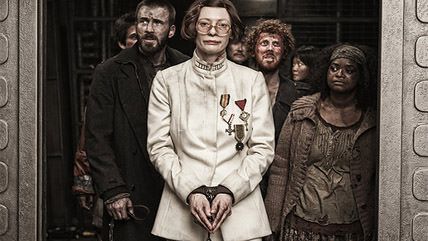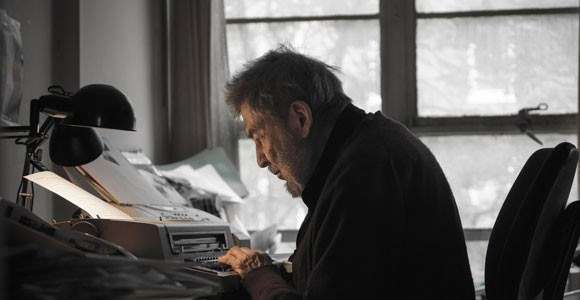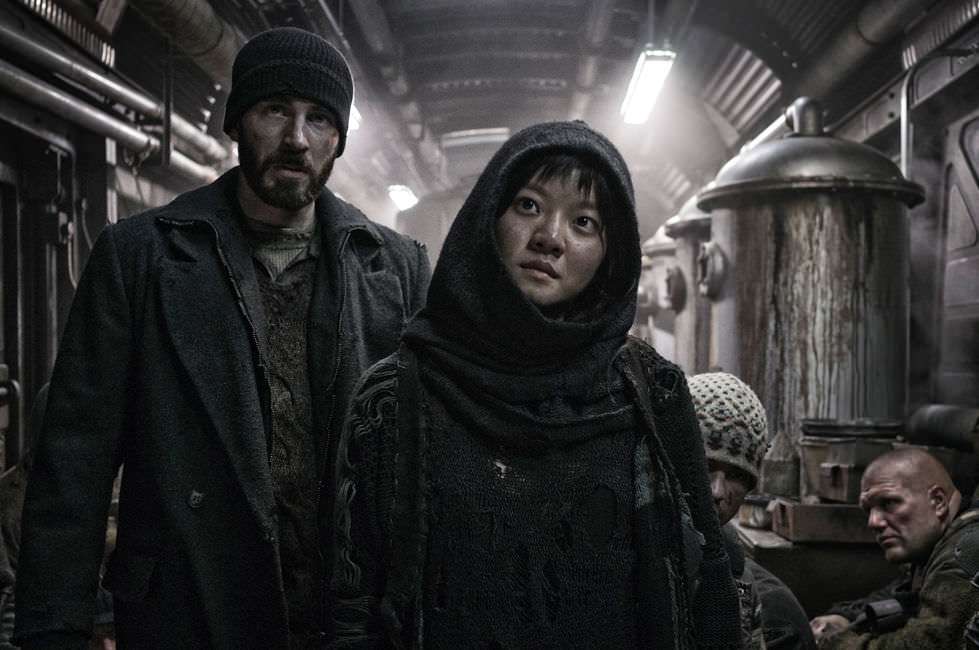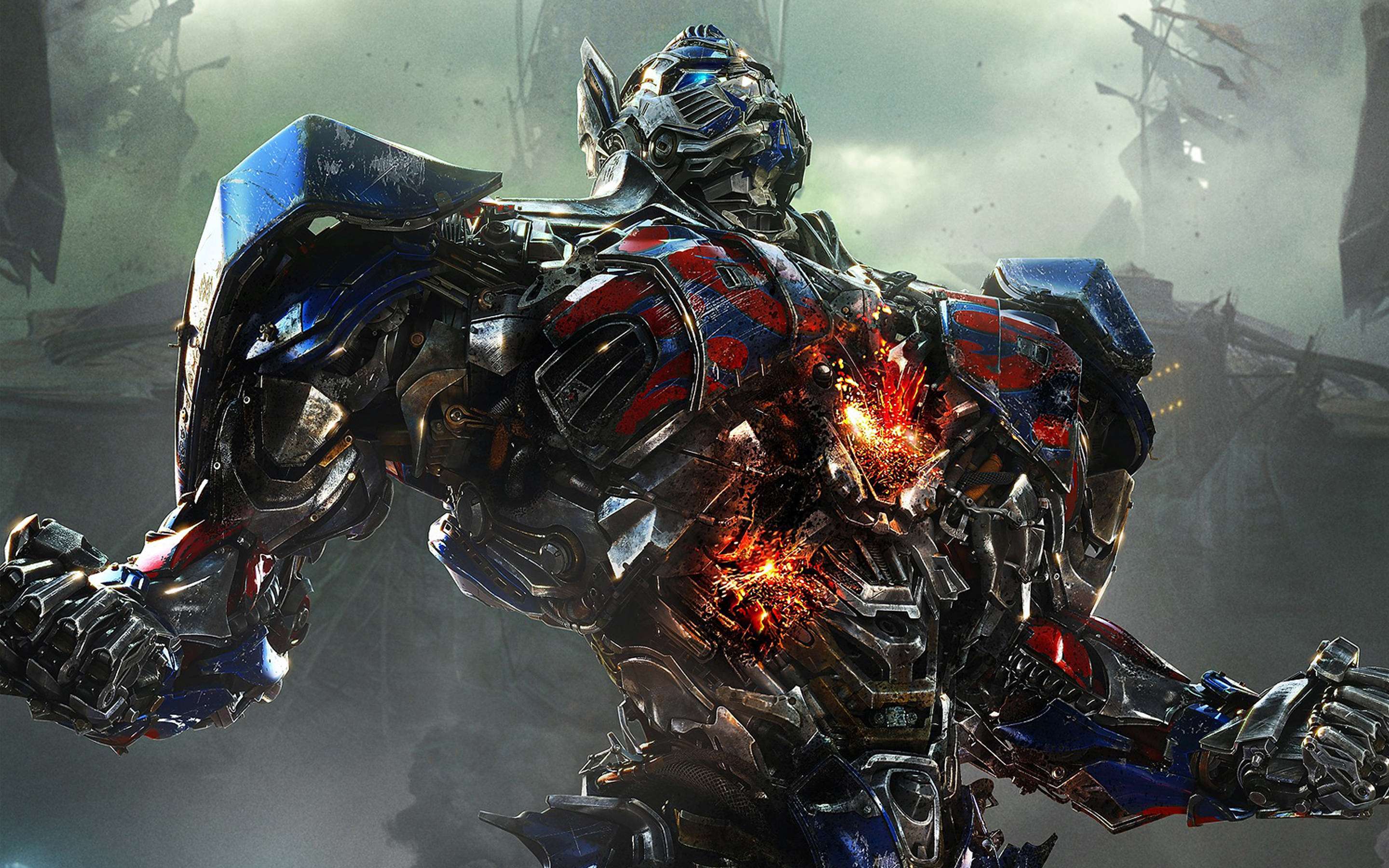Out of Step: A Monument to a Great Music Critic. Snowpiercer: Dystopia Revisited. Transformers: Age of Extinction: Whatever.
Nat Hentoff gets his due, Chris Evans hops a train, and Michael Bay does what he does all over again.


For well over 60 years, Nat Hentoff has been a one-of-a-kind public intellectual, an unrelentingly outspoken champion of both modern jazz and all of the liberties that flow from the First Amendment. In The Pleasures of Being Out of Step, a new documentary by David L. Lewis, we hear him explaining these twinned inspirations: "The reason we have jazz," he says, "the reason we have almost anything worthwhile, is the fact that we're a free people. And that came about because of James Madison, and those improvisers."
Lewis does a superb job of illustrating Hentoff's long career with firsthand interviews of the man himself, and many of his colleagues; with classic musical performances and vintage TV footage. At one point we see the long-departed Lenny Bruce, sucking on a cigarette and addressing the camera directly, saluting Hentoff as a fellow hipster (he was one of the rare critics who was valued by trailblazing musicians).
The son of Boston Jews, Hentoff started out as a teenage radio host in his hometown ("the most anti-Semitic city in the country," he recalls unfondly). He moved on to the jazz magazine Down Beat in the early 1950s, where he became one of the country's most perceptive critics, championing the work of such now-celebrated players as Thelonious Monk, Miles Davis, and Sonny Rollins. He turned the writing of album-cover liner notes into an art, perfecting this craft for records by Ornette Coleman, Miles Davis, John Coltrane, even—in a side trip—Bob Dylan. ("He told me stuff that wasn't true," Hentoff recalls with a chuckle, "but I got the essence of him, I think.") He also became a record producer, going into the studio with Cecil Taylor, Coleman Hawkins, and Max Roach and Abbey Lincoln. Wherever there was jazz, it seemed, Hentoff was there. And his coproduction of The Sound of Jazz—a 1957 CBS TV special that brought together Lester Young, Count Basie, Billie Holiday, and the inimitable Monk, among many others—was a landmark of televised jazz that has never been surpassed. (You can still marvel at it on YouTube.)
In tandem with all this activity, Hentoff was also a fearless First Amendment absolutist. When American Nazis announced plans to stage a march through the heavily Jewish city of Skokie, Illinois, Hentoff loudly condemned efforts to stop them from doing so. As he wrote, "James Madison insisted that the greatest danger to liberty is an infuriated majority smothering a minority. Therefore, freedom of speech must be protected against the community itself…"
Although he started out on the political left, Hentoff developed points of view over the years—especially during his long tenure at New York's Village Voice—that alienated many leftists. He was antiwar, but still supported the U.S. invasion of Iraq as a humanitarian enterprise. And his unflagging opposition to capital punishment ultimately led him to oppose abortion as well (respect for the sanctity of life, he felt, had to be "a seamless garment").
Hentoff turned 89 years old on June 10. He's white-haired and somewhat stooped now, but he's still sharp, recalling even the most long-ago moments of his extraordinary life with clarity and great good humor. We can hope that it's too early to be talking about monuments to the man, but when that time comes, this film will be a perfect one.
Snowpiercer

Korean director Bong Joon-ho's new dystopian fantasy gets underway with a mordant joke. It seems that in the recent past, when the Earth was being suffocated by global warming, a scientific consensus decreed that a new globe-cooling chemical should be sprayed into the air to reverse the effects of the climate change about which we'd long been warned. Unfortunately, this turned the world into a giant ice ball, which has been a matter of truly settled science for the last 17 years.
With almost all of humanity wiped out, a small group of survivors endlessly circumnavigates the frozen planet in a high-speed train, within which all of the old world's social castes remain in place. The rear cars of the train are inhabited by a desperate underclass, living in dark, squalid misery and kept in line by armed guards under the direction of a Thatcher-like martinet named Mason (Tilda Swinton). Moving forward, there's a middle class comfortably ensconced in cars with windows, and basking in sunlight. Proceeding farther, there are supply cars, in which the "protein bars" that feed the peasants are fabricated. (You don't want to know what they're made from.) Then come the first-class cars, filled with flowers and fountains and a wrap-around aquarium. Sushi, anyone?
At the very front of the train, just behind the "sacred engine," are the quarters of the godlike overlord Wilford (Ed Harris), whom no one of the lower orders has ever seen.
The plot consists of a proletarian revolt, led by the bearded Everett (Chris Evans) in league with the hot-headed Edgar (Jamie Bell), the wizened Gilliam (John Hurt), the drug-addicted Nam (Bong regular Kang-ho Song), and a grieving mother named Tanya (Octavia Spencer), whose child has been taken from her and led off to the forward cars. The rebels' progress from the back to the front of the train is unsparingly violent, filled with bloody hatchet battles, startling dietary horrors, and gruesome amputations. It ends, of course, in a confrontation with Wilford, who has an enlightening observation to make ("We are all prisoners on this train") and a surprising proposal to offer.
While the story is baldly schematic, Bong has given the movie a distinctive look—oppressively grim and grubby, for the most part. He brightens the tone with scenes set in the train's first class section (where there's even a disco) and spectacular outside shots, looking down from high above as the train barrels past glacial mountains and over snow-packed valleys. (The film's exteriors were shot in the Austrian Alps.) There's also some comic relief provided by Tilda Swinton, in a performance bizarre even by her own long-established standards. Outfitted with prosthetic teeth and big goggly glasses, her Mason is a classic bureaucrat, adept at small cruelties and malleable in her loyalties.
Snowpiercer, based on a French graphic novel published in 1982, is Bong's first English-language film (he wrote the script with the American screenwriter Kelly Masterson). He's a director of distinctive pictorial gifts, and he structures the action—of which there are large helpings—with admirable clarity. But the picture is often oppressively bleak, and it wears you down. It seems intended to be a small sci-fi classic, but whether that will turn out to be the case is very unclear.
Transformers: Age of Extinction

The good news about the new Transformers movie, I suppose, is that Shia LaBeouf is nowhere to be seen in it. The bad news … well, non-fans of this world-devouring franchise would probably look upon any fourth installment of it as bad news.
Mark Wahlberg steps in for LaBeouf here (the movie's a reboot, apparently), and that's certainly a plus. He plays Cade Yeager, a rural gadget-inventor who is surprised one day to see an old truck he's bought as a source of spare parts suddenly transform into Optimus Prime, leader of the towering Autobots—the good guy transformers. This event instantly comes to the attention of an obsessive CIA honcho named Attinger (Kelsey Grammer), who's determined to rid the world of all transformers, Autobots along with evil Decepticons. Attinger dispatches a team of takedown specialists to Yeager's farm to seize Optimus, and very quickly Yeager, his teenage daughter Tessa (Nicola Peltz), her racecar-driver boyfriend Jack (Shane Dyson), and Cade's mechanic buddy Lucas (T.J. Miller) are on the run.
Optimus quickly summons his fellow Autobots, who've likewise been lying low. You may remember these guys: Hound (voice of John Goodman), Drift (Ken Watanabe), Crosshairs (John DiMaggio), Brains (Reno Wilson), and so forth. Soon, everybody is on the way to a big tech company called KSI, whose owner, Joshua Joyce (Stanley Tucci), has found a way to create Transformers of his own with the use of Transformium, a substance he has derived from—hold on—the severed head of the evil Decepticon called Megatron. Joyce's first Transformer, Galvatron (Frank Welker), is waiting to repel all interlopers, human and otherwise, and he's not alone. To confuse things even further, there are also Dinobots. And a vast Decepticon mothership blotting out the sun above.
There's also more product-placement in this movie than I can remember in … ever. (Even Dr. Dre gets a Beats shoutout—like he needs the money.) And since China is a major market for these films (and since Chinese producers helped finance this one), the action switches for a long stretch to Hong Kong and Beijing.
Need it be said that none of this really matters? What matters is that returning director Michael Bay—the emperor of CGI havoc—has packed the movie with more fiery explosions, delirious chases and crashing battles than ever before. The effect of all this—especially stretched over nearly three hours (it's the longest film in the franchise)—is like being curb-stomped by angry Decepticons. But there's a huge audience for this machine-tooled mayhem—the last three Transformers movies grossed $2.6-billion dollars worldwide. So the millions of fans of the series will no doubt flock to this latest installment. The rest of us won't be missed.


Show Comments (16)